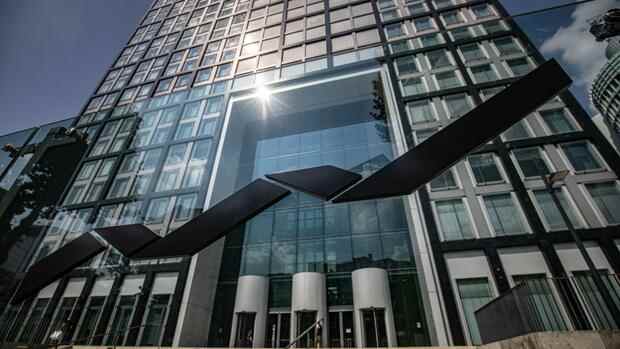The group presented figures on Wednesday evening.
(Photo: dpa)
Frankfurt Despite headwinds from the markets, Deutsche Börse achieved record results last year. The operating profit (Ebitda) rose by nine percent to 2.04 billion euros, as the group announced on Wednesday evening. Net sales also climbed nine percent to 3.51 billion euros.
With both key figures, Germany’s largest stock exchange operator slightly exceeded the goals it had set itself and the average analysts’ estimates. With the dividend, which is expected to increase from EUR 3 to EUR 3.20 per share, the group fell slightly short of market expectations.
“We have fully achieved our ambitious growth and profit targets, despite significant cyclical headwinds on the markets,” said CEO Theodor Weimer. This was possible, among other things, thanks to the diversification of the business and effective and silent cost management.
The stock exchanges were much less turbulent in 2021 than in the first year of the corona pandemic, 2020. In addition, the low global interest rates weighed on trading in interest rate derivatives and the business of the securities custody subsidiary Clearstream. This earned significantly less with the cash deposits of their customers. At the derivatives exchange Eurex, the most important division of the group, operating profit collapsed by 16 percent.
Top jobs of the day
Find the best jobs now and
be notified by email.
However, Deutsche Börse more than made up for these losses with its own growth initiatives and acquisitions. Last year, the group completed the majority acquisition of the US voting rights advisor ISS and the Swiss fintech Crypto Finance, as well as completely taking over the Fund Center platform from the major Swiss bank UBS.
Through the acquisitions, the company from Eschborn near Frankfurt has also reduced its dependency on market fluctuations, which analysts have been demanding for years. The share of recurring revenues in total net sales increased from 49 to 55 percent.
CEO Weimer wants to buy more
After the relatively quiet stock market year 2021, the Hessians now expect tailwind from the markets again in 2022. Because of the turnaround in interest rates, fluctuations on the stock exchanges and investors’ need to hedge against changes in interest rates are likely to increase. There is also hope for more IPOs.
“In addition to further structural and M&A-related growth, the company is also fundamentally anticipating an emerging cyclical tailwind, in particular from the expected turnaround in interest rates in the USA,” explained Deutsche Börse.
For the current year, however, the company is only expecting an increase in net sales of eight percent to around 8.3 billion euros. Earnings before interest, taxes, depreciation and amortization (Ebitda) are also expected to increase by eight percent to 2.2 billion euros.
The predictions mean that Deutsche Börse would have to grow more significantly in the coming year than in 2021 and 2022 in order to reach its medium-term targets. As part of the “Compass 2023” strategy, CEO Theodor Weimer had announced in November 2020 that the group would expand its net sales and operating profit by an average of ten percent per year up to 2023.
Weimer sees the group making “an important step forward”
From the point of view of the CEO, however, the company has “taken an important step forward” on the way to its medium-term goals for 2021. In the next two years, the group will consistently expand the business through its own growth initiatives and further acquisitions, said Weimer. The latter have not yet been taken into account in the forecast for the current year.
Weimer is primarily looking for acquisitions in six business areas: index and analytics, sustainable investments, commodities, foreign exchange, fixed income and investment fund services. In addition, according to board member Thomas Book, Deutsche Börse is flirting with further acquisitions in the business of digital assets such as cryptocurrencies.
More: Why didn’t Biontech go public in Germany? Interview with Thomas Book
